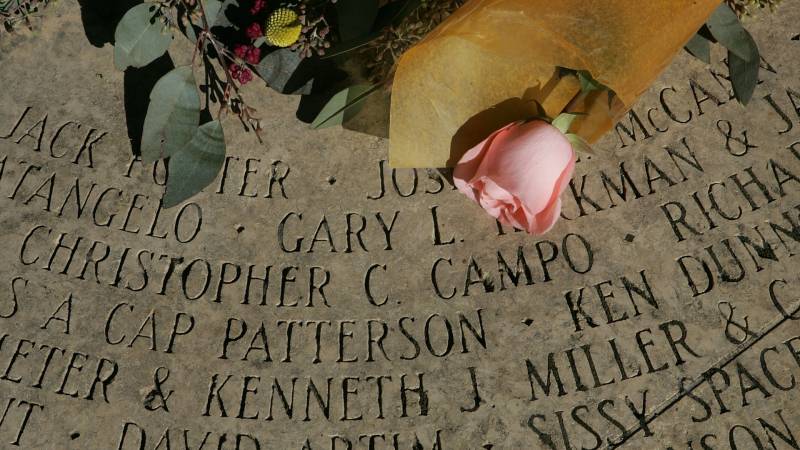It’s been 40 years since the CDC first reported cases of a deadly, rare lung infection in five previously healthy gay men in Los Angeles. The infection came later to be understood as a symptom of HIV-AIDS, the syndrome that has claimed more than 700,000 American lives. We’ll hear reflections from those who knew and cared for the earliest and sickest patients, in an era of scarce public health information and widespread homophobia.
Remembering the Early Days of the AIDS Epidemic, 40 Years Later
53:06

A rose is seen placed on the "Circle of Friends," a ring of names engraved in stone to honor those who have been affected by AIDS at the AIDS Memorial Grove in San Francisco, California. The battle against the still-uncured disease which infects hundreds of thousands of people worldwide each year. (Photo by Justin Sullivan/Getty Images)
Guests:
Hank Plante, retired reporter, KPIX-TV who won a Peabody award in 1986 for AIDS coverage
Vince Crisostomo, director of aging services, San Francisco AIDS Foundation; has lived with HIV since 1987<br />
Dr. Paul Volberding, professor emeritus, Department of Epidemiology and Biostatistics, UCSF
Dr. Kathleen Clanon, medical director, Alameda County Health Care Services Agency
Sponsored